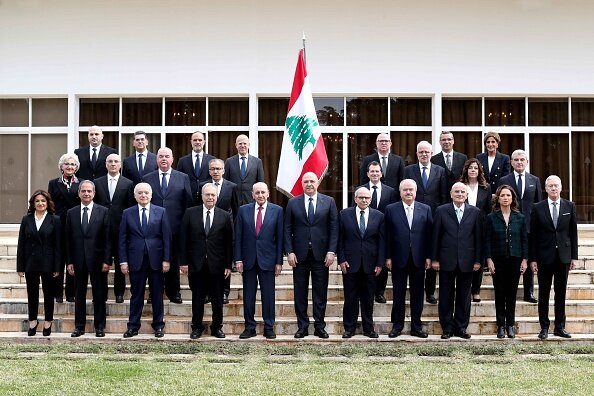Why is Washington pressing Lebanon to put Hezbollah weapons to vote in cabinet?

BEIRUT — Israel’s Channel 14 revealed a U.S. plan that “is not unlikely to materialize” to drag Arab and Islamic countries into normalization with the Israeli entity within a year at the latest.
The Hebrew channel predicted that Riyadh would sign the normalization agreement “after the end of the war in Gaza, taking into account the Saudi public opinion, and that Indonesia would automatically follow suit.”
The Saudi regime, however, may be able to influence its closest ally, Pakistan, to normalize relations with Israel. This matter is more complicated due to the strong Islamist movements in Pakistan that are hostile to India and the latter’s close relations with Israel.”
The Hebrew channel confirmed that “significant progress has been made in recent weeks in negotiations with the new regime in Damascus.”
As for Lebanon, “matters are more complicated and depend to a large extent on the maturity of the process of disarming Hezbollah, a process that has not yet occurred.”
In an interview with Anadolu Agency, U.S. envoy to Syria Thomas Barrack said that the war between Iran and Israel is paving the way for a “new path” in the Middle East.
Barrack said, “What just happened between Israel and Iran is an opportunity for all of us to say: Stop, let’s forge a new path,” noting that Turkey is a key element in this new path.”
In response to a question about whether an agreement was expected between Syria and Israel, Barrack said, “Yes, that’s my hope. They must reach an agreement at some point.”
Barrack indicated that he believed a similar agreement could be achieved with Lebanon: “Why can’t we live in peace?”
Meanwhile, Lebanon is considering Barack’s proposal to vote on the Hezbollah weapons issue in the cabinet, coinciding with the adoption of a step-for-step mechanism, whereby the enemy would withdraw from one of the five occupied areas in exchange for every step the Resistance movement takes to hand over its weapons.
Commenting on the three-month timetable for handing over weapons, Parliament Speaker Nabih Berri warned, according to sources, that the current level of conditions is too much, as the Israeli enemy has not resolved any of its wars.
Hence, Tel Aviv cannot impose major conditions on Lebanon to the exclusion of other issues, especially since there is a danger of renewed Takfiri terrorism on the eastern border with Syria.
Barrack’s proposal also includes controlling and demarcating the border between the two countries to completely encircle Hezbollah.
Observers warn that the provocative statements made by some political and media figures regarding the Shebaa Farms don’t belong to Lebanon could be a prelude to a resumption of the U.S.-led Israeli aggression. Obviously, they are betting on a tripartite intervention (Israeli-American-Syrian) to “eliminate” Hezbollah!
Observers also warn of intensive American-Arab coordination to restrict the cash economy and Hezbollah’s banking institution, the Qard al-Hassan, under the pretext of implementing “reforms”. One indication of these intentions is the recent assassination of a money changer.
Washington knows for certain that the task of disarming the Resistance is beyond the capacity of the Lebanese state. However, it is striving to push the Lebanese into a civil war by pressuring the Lebanese government to take a formal decree that strips the Resistance of its constitutional legitimacy.
Accordingly, this will give Israel greater scope to intensify its hostilities, whereby the so-called international community will, more than ever before, support it against an “illegitimate” resistance movement.
Regardless of whether Hezbollah is defeated or not, the anti-Resistance team in Lebanon agrees with Israel that the current situation is very favourable, but the military and popular facts do not indicate so as confirmed throughout the decisive response of Hezbollah Secretary-General Sheikh Naim Qassem on Saturday.
The ceasefire agreement that ended the war on Lebanon marked a new phase, which is the phase of “state responsibility”, Sheikh Qassem affirmed, wondering, “Is there anyone who has a mind and thinks properly who would eliminate his own sources of strength while the Israeli enemy does not implement the agreement and going ahead with its aggressions?”
The Hezbollah chief added, “You must understand that this cannot continue! Do you imagine we will remain silent for eternity?”
Leave a Comment